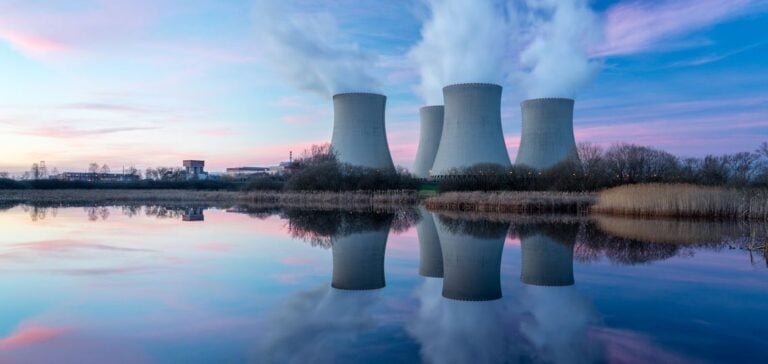The cooperation agreement between Ukraine and Bulgaria in the field ofnuclear energy was formalized by the signing of a memorandum of understanding between the Ukrainian Minister of Energy, Herman Halushchenko, and his Bulgarian counterpart, Rumen Radev. This important event took place during Ukrainian President Volodymyr Zelensky’s official visit to Bulgaria.
A strong partnership for the future of nuclear energy: Strengthened cooperation between Bulgaria and Ukraine
According to the Ukrainian Ministry of Energy, the main objective of this agreement is to create a solid and beneficial framework for cooperation between the two countries, taking into account their common interests and objectives. This partnership aims to strengthen the exchange of expertise, engineering and solutions in the field of nuclear energy.
In concrete terms, the parties have undertaken to step up the provision of independent expertise to assess the safety of nuclear facilities, and to facilitate the exchange of experts and access to infrastructure. Joint projects and initiatives in the field of nuclear energy will also be implemented.
Another important dimension of this cooperation concerns the nuclear fuel cycle. The two countries are committed to working together at every stage of this cycle, including the extension of the operational life of nuclear facilities, with the aim of improving their safety and performance.
Towards a resilient alliance: strengthening energy security and promoting efficiency in Bulgaria-Ukraine cooperation
Protecting energy infrastructures against physical, electromagnetic and cyber threats is also a priority for this cooperation. The two countries plan to exchange knowledge and experience in this critical area to enhance the safety of energy installations.
In addition to nuclear energy, the MoU also provides for cooperation in other areas. It focuses on energy efficiency, increasing energy storage, developing smart grids and promoting digitalization.
Strengthening long-term cooperation: joint working group and consolidation of energy links between Bulgaria and Ukraine
To facilitate the implementation of these measures, a joint working group will be set up. This group’s mission will be to develop cooperation in the various areas mentioned above. The MoU will have an initial duration of five years, with an option for automatic renewal every three years, thus further consolidating energy links between Ukraine and Bulgaria.
This closer collaboration between the two countries should help to promote the safety, efficiency and sustainability of energy infrastructures, while encouraging more intelligent and responsible use of energy resources. It also paves the way for new development and growth opportunities in the energy sector for Ukraine and Bulgaria.






















